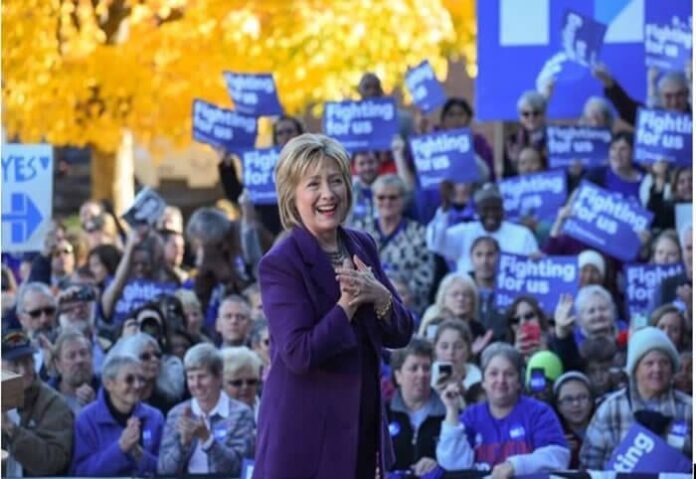Democratic front-runner Hillary Clinton will try to encourage more progressive voters to her side during her speech at the University of Wisconsin-Madison on Monday. She is expected to outline her view of the Supreme Court and highlight her stand on immigration, voting rights, affirmative action programs and abortion rights.
Clinton is seeking to regain her campaign momentum after Senator Bernie Sanders won the caucuses in Alaska, Hawaii, and Washington on Saturday.
Hillary Clinton on the battle over the Supreme Court
A Clinton aide told CNN that the Democratic front-runner is “greatly concerned about the kind of nominee” Trump would nominate to the Supreme Court, a point she would emphasize during her speech.
The aide said Clinton would point out that based on the Republican front-runner’s “positions on a number of issues, there is a good reason to believe a Trump nominee would seek to roll back our rights, further empower corporations, and undo so much of the progress we’ve achieved.”
According to the aide, Clinton will try to convince voters to put the Supreme Court issue “at the front of their minds as they consider their choice for President in 2016” because the “core pillars of the progressive movement are at risk of being upended by Court in a single term.”
Clinton supports Merrick Garland to become a Supreme Court Justice because of his “considerable experience on the bench and in public service. President Barack Obama nominated Garland to replace the late Supreme Court Justice Antonin Scalia.
Democratic debates depend upon Sanders’ tone
Separately, Clinton’s chief campaign strategist, Joel Benenson commented that Senator Sanders cannot dictate the terms of any future debates since he broke his promise to avoid running a negative campaign. The Sanders campaign is calling for another debate before the primary in New York on April 19.
During an interview with CNN, Benenson said, “They’re talking about running harsher negatives now. He noted that Sanders spent $4 million running negative ads in the weekend before March 15, but he lost all five states.
“This is a man who said he’d never run a negative ad ever. He’s now running them. They’re now planning to run more. Let’s see the tone of the campaign he wants to run before we get to any other questions,” said Benenson.
When asked about Sanders’ call for debate in New York. Benenson emphasized that the Clinton campaign agreed to debate up to a certain point, and they are now busy campaigning in states including New York.
He added that Clinton did well in the debates, and there’s no risk to a debate in New York. He reiterated, “Sen. Sanders doesn’t get to decide when we debate, particularly when he’s running a very negative campaign against us. Let’s see if he goes back to the kind of tone he said he was going to set early on. If he does that, then we’ll talk about debates.”









